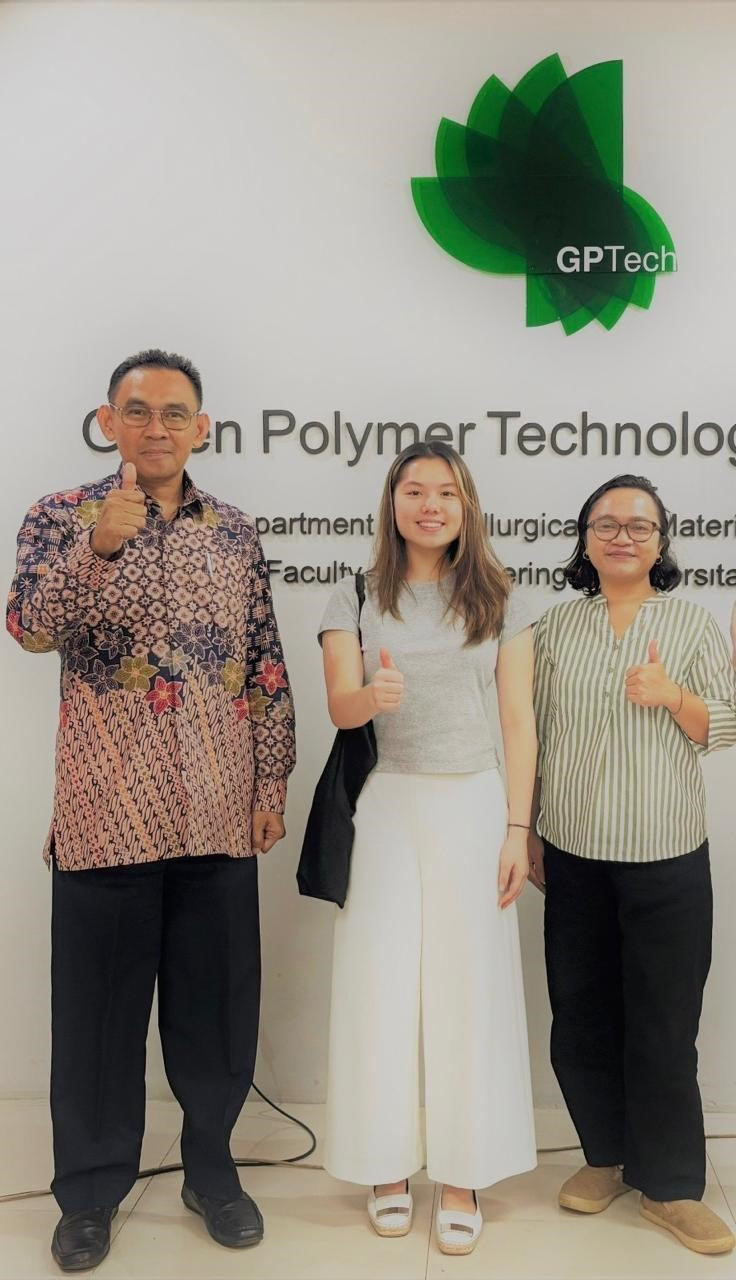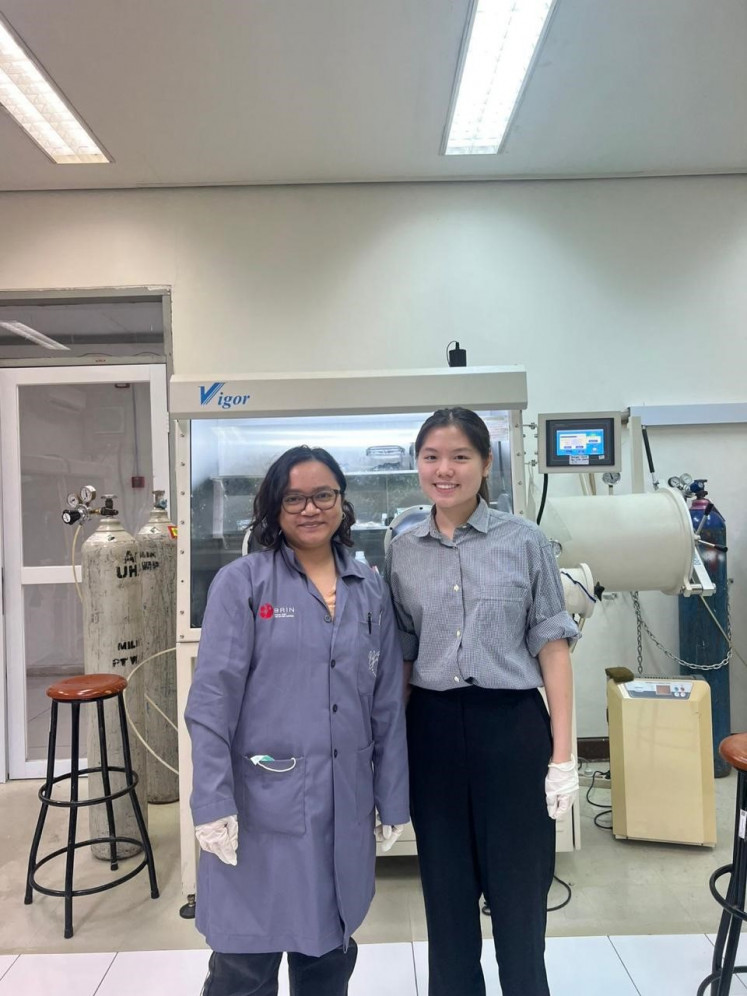Popular Reads
Top Results
Can't find what you're looking for?
View all search resultsPopular Reads
Top Results
Can't find what you're looking for?
View all search resultsHigh school student Gracelyn Atmadja contributes to pioneering battery technology research
Change text size
Gift Premium Articles
to Anyone
W
hile most high school students explore science through classroom experiments, Gracelyn Atmadja took her passion a step further by contributing directly to a pioneering research project on sustainable battery technology at the University of Indonesia (UI).
Collaborating under the guidance of National Research and Innovation Agency (BRIN) researcher Dr. (chan). Christin Rina Ratri and UI’s Department of Metallurgy and Materials lecturer and practitioner Prof. Dr. Mochamad Chalid, S.Si., M.Sc.Eng., Gracelyn became part of Indonesia’s first study developing starch-based biopolymer solid electrolyte separators for eco-friendly batteries.
As the world intensifies its efforts to reduce the carbon footprint of the energy industry, the collaborative research aims to replace toxic, petroleum-derived battery components with safer, biodegradable alternatives that could shape the future of renewable energy systems.
“Curiosity, dedication and a passion for learning, as shown by Gracelyn, prove that scientific progress is a long-term journey that must continue across generations. The scientific relay must begin early,” said Prof. Chalid.
Gracelyn herself has a deep concern for industrial waste and environmental degradation. This concern inspired her to explore science-based solutions for a cleaner future.
“Every day we rely on technology, yet we often overlook the real ecological impact behind it. That’s why I wanted to do something meaningful for the planet,” she said.
Gracelyn explained that modern technologies such as electric vehicles (EVs) and smartphones still rely heavily on petrochemical-based battery materials that are harmful to the environment. Within a decade, most conventional batteries corrode and contaminate ecosystems due to the use of toxic and flammable lithium-based liquid electrolytes.
This issue, she continues, became the foundation for the team’s research to find safer and biodegradable alternatives.
Transforming her concern into concrete action, Gracelyn immersed herself in a research project that translates environmental awareness into applied scientific innovation.
“What’s remarkable is that throughout the study, Gracelyn demonstrated exceptional enthusiasm and adaptability, even optimizing process parameters to produce membranes that can function effectively in battery systems,” says Dr.(chan). Christin, adding that the starch-based solid battery research is among the first in Indonesia and has strong potential for industrial-scale development.
The research team developed a renewable biopolymer material using a low-energy synthesis method and starch as a sustainable base component to replace petrochemical separators.
(Courtesy : dok istimewa)Starch, which is abundant and renewable in Indonesia, was selected for its molecular structure that facilitates ion migration. The starch was modified through thermal cross-linking using glycerol as a plasticizer, dried at 90 degrees Celsius, and processed through the solution-casting method. Doping with lithium perchlorate further enhanced charge-carrier mobility and thermal stability, positioning the resulting biopolymer membrane as a promising solid-state battery component, including for electric vehicles.
From an academic standpoint, Prof. Chalid emphasized the study’s significance in representing a concrete step toward national self-reliance in sustainable battery technology. If further developed, these findings could support the production of eco-friendly batteries for Indonesia’s EV industry and strengthen the nation’s position in the global movement toward sustainable energy.
“Indonesia faces major challenges in energy and sustainability. This research is valuable because it utilizes local, safe and inexpensive resources that could replace imported materials in the national battery industry,” he said, adding that the key properties of the engineered biopolymer membranes even outperform certain commercial products.
“We plan to continue this research to the scale-up and reproducibility testing phase so it can be applied in national battery systems.”
Prof. Chalid also emphasized that the responsibility to protect the planet is a collective one.
“This planet is not an inheritance, but a loan from the next generation. The spirit shown by young people like Gracelyn is a clear example of how meaningful scientific contributions can begin with small yet impactful steps.”
Reflecting on her experience, Gracelyn noted that being involved in every stage from start to finish was an extraordinary experience.
“I learned that science isn’t only about results but also about understanding mistakes and improving them. The process itself teaches you how real progress happens,” she said.












